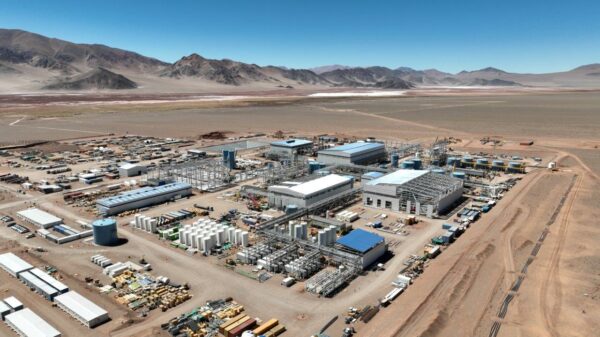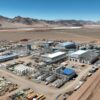British Columbia’s RecycLiCo Battery Materials Inc. (TSX-V: AMY) (OTCQB: AMYZ) is constructing a modular battery recycling plant in Vancouver that it will transport to Taiwan for a new joint venture (JV) with the Asian country’s Zenith Chemical Corporation.
On Thursday, the lithium-ion battery recycling outfit announced that it had obtained investment approval from Taiwan’s Department of Investment Review for Zenith Battery Materials Technology. The partners finalized an agreement to establish the new company this June after signing a memorandum of understanding in early 2022.
“The joint venture has initiated its project planning, with Zenith Chemical leading the site preparation work in Taiwan and RecycLiCo concurrently preparing a 2,000 metric ton/year modular plant in Vancouver,” said RecycLiCo in a news release.
“This modular plant is pivotal to the project and is intended to be transported to Taiwan for the final commissioning.”
The companies will invest a total of US$25 million in the plant’s construction, starting with an initial $1 million from RecycLiCo for the first phases. It converts waste, known as “black mass,” from end-of-life lithium-ion batteries into resources that can be used in new batteries like lithium carbonate and lithium hydroxide monohydrate.
The plant will also recover cobalt, nickel and manganese with a 99 per cent efficiency rate, according to RecycLiCo.
Zenith is a company that focuses on producing nickel-based chemicals for lithium-ion batteries. It has partnerships with the Japanese chemical producers Hanwa (TYO: 8078) and Central Glass Co., Ltd (TYO: 4044).
Read more: Lithium South Development technical report shows 40% increase in lithium recovery
Read more: Lithium South Development first production well installed at Hombre Muerto lithium project
JV will leverage RecycLiCo’s battery recycling method and Zenith’s Taiwan resources
RecycLiCo says Zenith Battery Materials will harness its battery recycling method and Zenith’s infrastructure, land and labour resources in Taiwan.
“Zenith is an ideal partner for our first joint venture on several levels. They have deep technical expertise in chemical processing, and established infrastructure, which will enable us to move swiftly and efficiently toward production,” said RecycLiCo’s Chairman Paul Hildebrand in October.
Zenith will be receiving four million RecycLiCo shares through the deal.
“I am pleased to announce our joint venture and look forward to working closely with RecycLiCo to establish the first commercial recycling plant in the world, based on RecycLiCo’s proprietary technology,” said Zenith Chemicals Chairman, James Fang.
RecycLiCo has been developing its proprietary closed-loop battery recycling technology since 2016 and the company’s demonstration plant in Vancouver became fully operational last November. RecycLiCo has proven on a small-scale that lithium-ion batteries can be efficiently recycled.
As the demand for carbon-free technologies grows and North American countries race to meet the electric vehicle mandates implemented by their governments there is also a growing need for efficacious recycling technologies like these.
A report this month from Canada’s Fraser Institute predicted that 388 new mines would be needed to meet those electric vehicle mandates.
Vancouver will soon be home to the country’s largest lithium-ion battery cell plant. Construction of the $1 billion E-One Moli battery factory is set to commence next year. It will be fully operational by 2028 and capable of producing 135 million battery cells per year.
rowan@mugglehead.com












